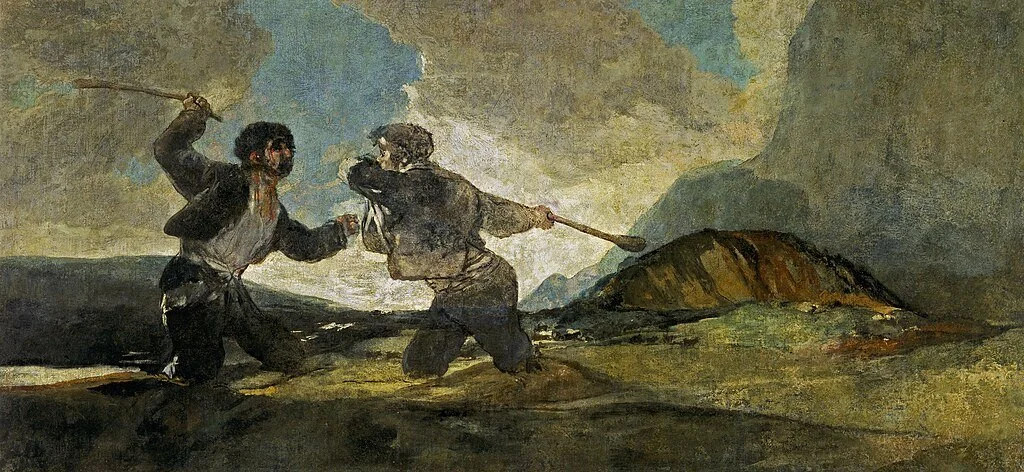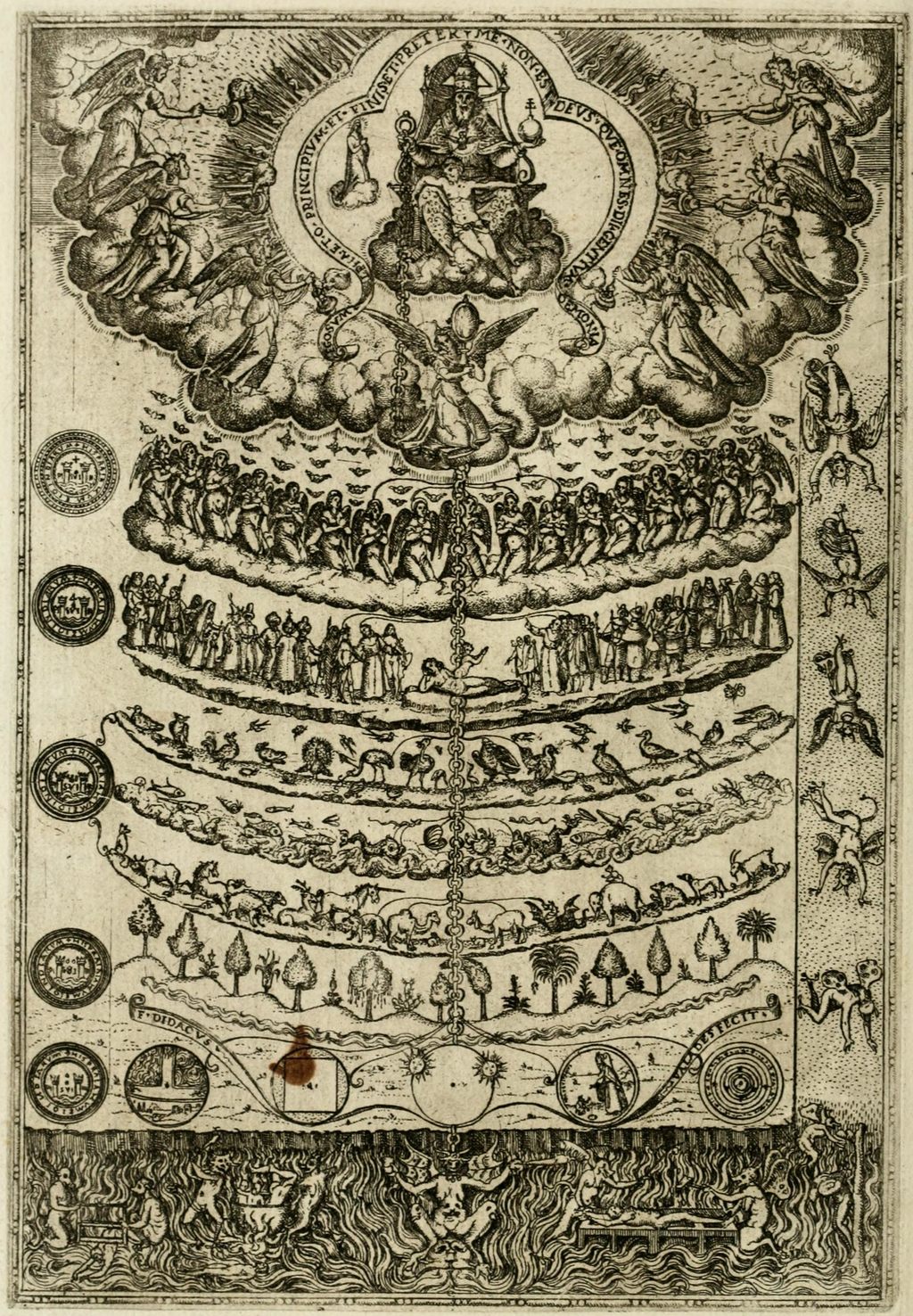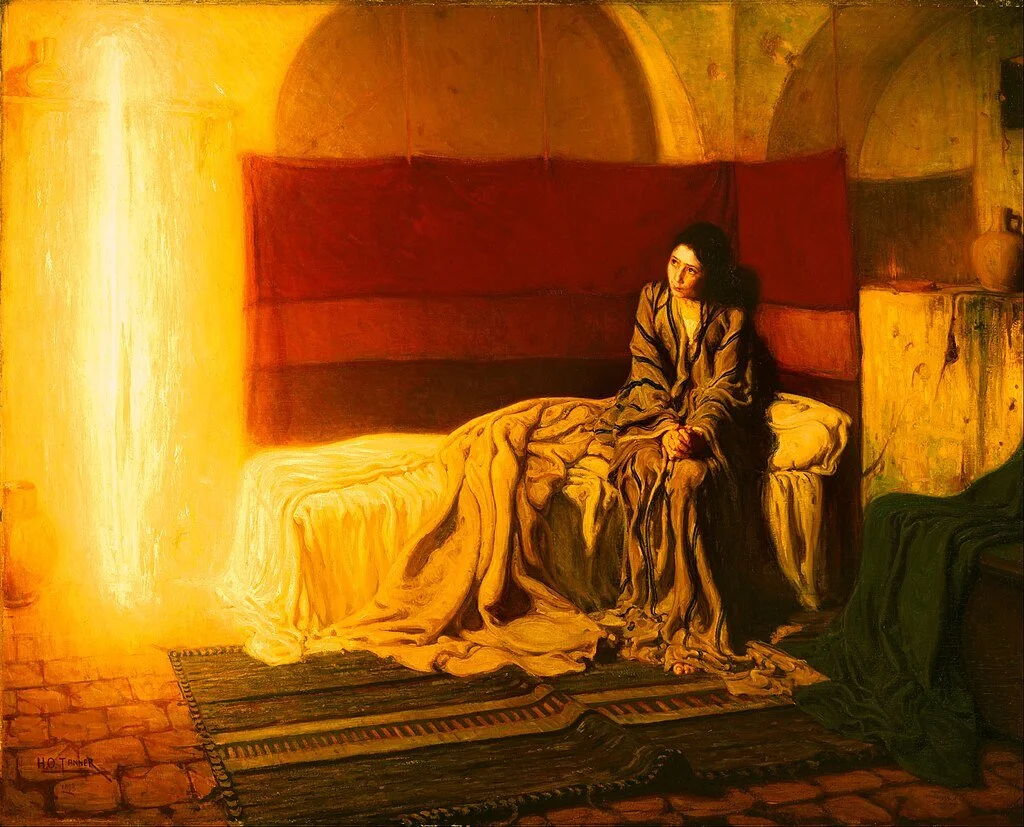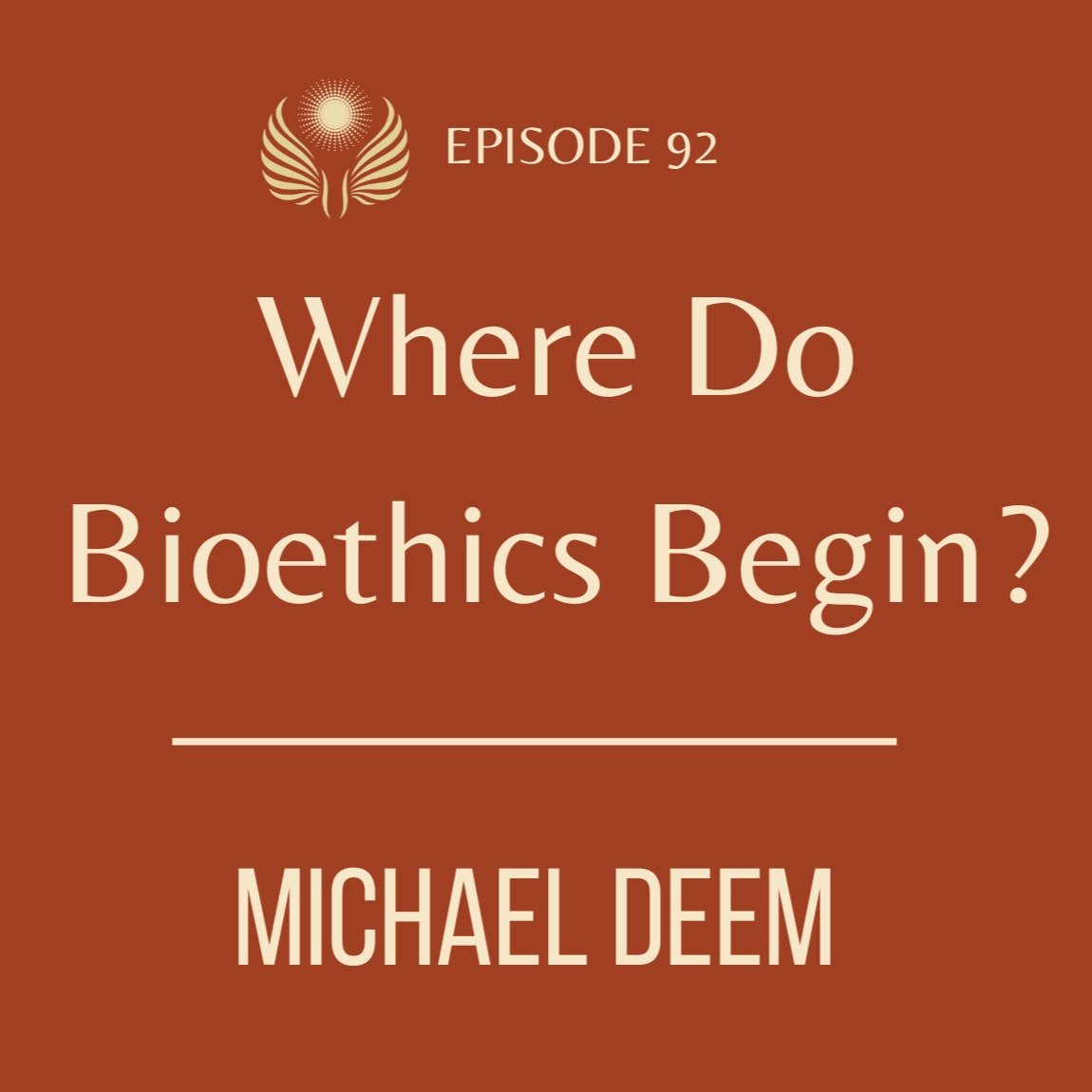The Genealogies of Modernity Journal
Schmitt and Technological Friendship
Schmitt’s interpretation of politics as fundamentally being a fight between friends and enemies may well, at its core, be correct. Yet, Schmitt’s trying to tie this claim to space is a failure which cannot be ignored.
Sam Mace on Carl Schmitt’s friend-enemy dichotomy
The Great Chain of Being, Part I
The chain of being began in ancient philosophy, but it reached its fullest and most systematic expression in medieval Christendom. In the hands of medieval scholastics, the chain of being was personified.
Julia Powell’s genealogy of the Great Chain of Being
On Not Counting on the Katechon, Part II
“All the past incarnations of the katechon have resulted culturally in a progressive, step-by-step demystification of the nature of violence itself, bringing to the surface its mimetic and cyclic nature. Are we not at the point where the very discussion of the katechon involves an understanding of this nature and the actual unsustainability of violent solutions?”
Anthony Bartlett offers a genealogy of the katechon
On Not Counting on the Katechon, Part I
“The most significant recent embrace of the katechon comes from tech-billionaire student of Girard and Trump/Vance backer, Peter Thiel. The connection with Girard makes this latest iteration doubly provocative and in need of serious examination.”
Anthony Bartlett offers a genealogy of the katechon
The Return of Enchantment: Relational Reality at the Edge of Modernity
What earlier ages described as communion or participation reappears in a new vocabulary of entanglement and interdependence… The underlying insight is familiar: the world is not a collection of discrete objects but a web of relationships, a reality that becomes understandable only through forms of participation.
Brian M. Ross on the compatibility of religion and science
The Interaction Problem
Either the mysterious structures underpinning our rationality are arbitrary and misleading, or—somehow—they broadly work… We are forced to wager that there is something somehow connecting our thoughts with reality.
Kit Wilson on science, skepticism, and subjective experience
Our Modern Split Personality Disorder
“As the great phenomenologists and theoretical physicists of the mid-twentieth century saw it, then, science simply cannot deny ordinary human experience without ultimately undermining itself.”
Kit Wilson on science and reality
René Girard, Modernity, Apocalypse, Part II
“Girardian revelation is a necessary addition to the genealogies of the modern, not in any sense of religion making a comeback to contest the secular, but in a sense internal to the secular itself. ”
Anthony Bartlett on René Girard
René Girard, Modernity, Apocalypse, Part I
“Girard’s generative anthropology rises from a discovery of foundational violence, and constantly illustrates a desperate contemporary need to somehow free ourselves from this violence.”
Anthony Bartlett on René Girard
Worldpicture, Part III: The Cartesian Roots of Quantum Theory and Postmodernism
“We must recognize that the post-Cartesian reductive-materialist frameworks will never be sufficient to support a robust and expansive human flourishing.”
M. G. Scott on re-accessing metastructure
Worldpicture, Part II: The New Quantum Ontology
“The truly strange thing about quantum mechanics is not the content of the theory: it’s the way that quantum mechanics threatens to upend our fundamental relationship to reality itself.”
M. G. Scott on quantum mechanics and truth.
Is There a Modern Potlatch?
Does the agonistic ritual of the potlatch—identified as “primitive” by some—only belong to the past or does it appear in the so-called modern world?
Carl Friesenhahn looks at three ways of answering this question.
The Gospel according to Convenience
Williams’ work is not just a historical treatise but a call to deep introspection about what it means to live out one’s faith amidst the pressures of any culture that has a different telos than one’s religion.
LuElla D'Amico reviews Nadya Williams’ latest work
Two New Studies of Owen Barfield
Mateusz Stróżyński on Owen Barfield, whose philosophy and poetry are “indispensable… for those who want to go beyond the present spiritual and cultural crisis.”
On Dentistry: a Mouthful of Memento Mori
Every spoken word was a pilgrim, in some sense, passing through the valley of the shadow of death.
Lauren Spohn ponders death from the dentist’s chair
Three Critiques of Secularism
Is it possible to critique secularism in a thoroughly secular age?
Ali Harfouch on alienation and the sublime
Arnold Lunn and the Religiosity of “Modern” Mountain Athletes
Lunn’s story illustrates the reality that one need not choose between being a “modern” and “classical” mountain enthusiast or between being an inventor or follower of tradition.
Margaret Sutton on the “something else“ we find in the mountains
Where Do Bioethics Begin?
Do bioethicists actually change minds?
An interview with Michael Deem
Americans, Our Guns, and Catholic Social Teaching
Guns, in these contexts divorced from a practical function, have come to bear a symbolic meaning.
Catherine Yanko responds to the Genealogies of Modernity podcast























